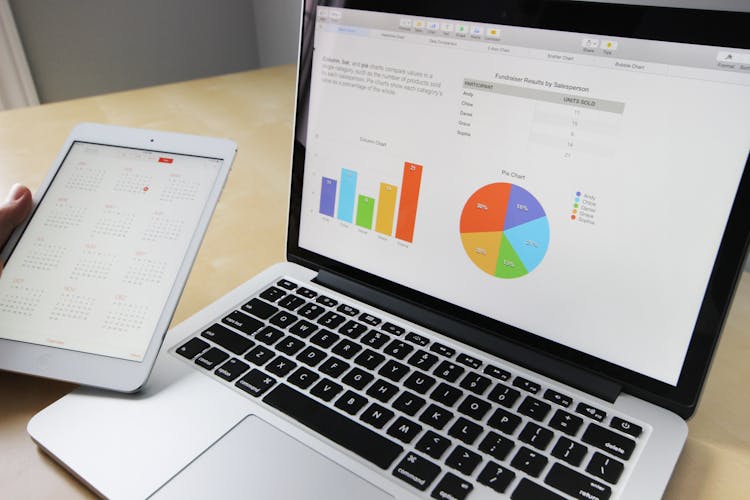
Digital Transformation in 2025: Navigating the Future of Business Innovation
Digital Transformation in 2025: Navigating the Future of Business Innovation
The digital transformation journey has accelerated at an unprecedented pace over the past few years, and by 2025, it is set to redefine how businesses operate across every sector. With emerging technologies and shifting consumer behaviors, digital transformation is no longer a choice—it’s a necessity. Here, we explore the key trends shaping this transformation and highlight insights from leading experts such as McKinsey, Deloitte, and Accenture.
-
The Rise of Hyper-Automation
Automation technologies are evolving rapidly, moving beyond simple task automation to more sophisticated, AI-driven processes. By 2025, McKinsey predicts that businesses will automate 70% of tasks in key industries, including manufacturing, retail, and customer service. This shift will allow companies to streamline operations, reduce costs, and enhance decision-making capabilities. Tools like RPA (Robotic Process Automation), AI, and machine learning will automate repetitive tasks, freeing up human talent to focus on more strategic endeavors.
Example: In retail, AI-driven inventory management systems will predict demand fluctuations in real-time, optimizing stock levels and reducing operational waste.
-
Cloud-Native Business Models
Cloud technology has been pivotal in driving digital transformation, and by 2025, almost 90% of businesses will have migrated to cloud-native models, according to Deloitte. Cloud-native infrastructure offers enhanced scalability, flexibility, and cost-effectiveness, enabling organizations to quickly adapt to market changes. The widespread adoption of multi-cloud and hybrid-cloud strategies will ensure greater data security and interoperability across platforms.
Example: Companies in finance and healthcare will continue to embrace cloud-native platforms, improving access to critical data and enabling quicker responses to customer needs.
-
Data-Driven Decision Making
As data continues to grow exponentially, businesses are increasingly leveraging data analytics to gain actionable insights. By 2025, Accenture estimates that organizations using AI-driven analytics tools will see a 40% increase in revenue. Data-driven decision-making is enabling businesses to predict trends, understand customer behavior, and tailor their strategies with precision. With the rise of IoT devices, real-time data collection will be at the heart of every business operation.
Example: In manufacturing, smart factories will rely on IoT sensors and AI to optimize production processes and predict machine failures before they occur, reducing downtime and improving productivity.
-
The Integration of Artificial Intelligence
AI is no longer limited to a niche market—it has become an integral part of business strategies. By 2025, 75% of enterprises will deploy AI across core functions like customer service, HR, and sales, according to McKinsey. AI will enhance efficiency, provide deeper insights, and improve customer experiences. Machine learning algorithms will analyze vast datasets to predict customer needs, offer personalized recommendations, and create hyper-targeted marketing campaigns.
Example: In customer support, AI chatbots will manage inquiries, offering immediate assistance and seamlessly escalating complex cases to human agents when needed, reducing response times and increasing satisfaction.
-
The Shift to Digital-First Customer Experiences
Consumer expectations are rapidly evolving, with a growing demand for seamless, omnichannel experiences. By 2025, businesses will have fully embraced digital-first strategies, where customer interactions will be driven primarily by digital channels, including mobile apps, social media, and e-commerce platforms. Personalization will be key, with companies using AI and big data to create hyper-targeted marketing campaigns that resonate with each individual consumer.
Example: In hospitality, personalized booking experiences, powered by AI, will offer tailored travel recommendations based on user preferences, past behavior, and real-time data from local attractions.
-
Decentralized Finance and Blockchain Integration
Blockchain technology, once relegated to cryptocurrency, is now poised to revolutionize industries like finance, supply chain, and healthcare. By 2025, decentralized finance (DeFi) solutions will have reached mainstream adoption, transforming the financial landscape by offering more secure, transparent, and efficient ways of conducting transactions. The integration of blockchain will also facilitate more efficient supply chains by tracking goods in real-time, reducing fraud, and enhancing trust between stakeholders.
Example: Financial institutions will adopt blockchain technology to streamline cross-border payments, reducing transaction fees and improving processing speed.
-
Ethical Digital Transformation
As digital transformation evolves, companies are becoming increasingly aware of the ethical implications of new technologies. By 2025, businesses will prioritize transparency, data privacy, and responsible AI practices to maintain customer trust. A recent report from Accenture emphasized the importance of building ethical AI systems that align with societal values, ensuring that technologies are used in ways that benefit both businesses and consumers.
Example: Companies will implement AI governance frameworks to ensure fair decision-making and reduce bias in hiring practices, lending decisions, and customer service operations.
Conclusion
Digital transformation in 2025 will be characterized by a deeper integration of AI, automation, cloud technology, and data-driven strategies. Businesses that embrace these changes will be more agile, customer-centric, and efficient, positioning themselves for success in an increasingly digital world. As Deloitte puts it, “Organizations that harness the power of digital transformation will not only survive but thrive, shaping the future of business innovation.” Now is the time to embrace the digital future and unlock the full potential of your business.
At Kapsula, we specialize in providing cutting-edge digital transformation solutions that empower businesses to navigate the future with confidence and drive sustainable growth.
Contact us today to take your digital strategy to the next level.
References:
- Deloitte Insights: Tech Trends 2025 (www.deloitte.com)
- Accenture: What is Digital Transformation & Why is it Important? (www.accenture.com )
- Exploding Topics: 45+ Key Digital Transformation Statistics (2025) (www.explodingtopics.com)
- JD Meier: 2025 Trends That Will Shape Our World (jdmeier.com)




